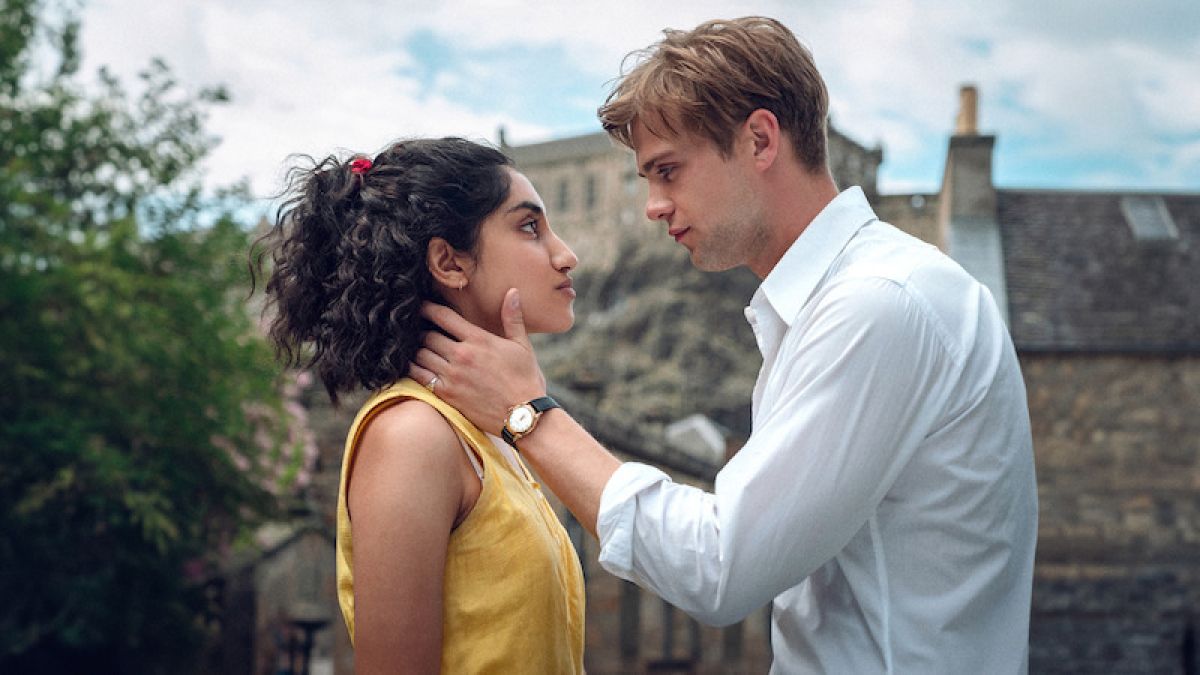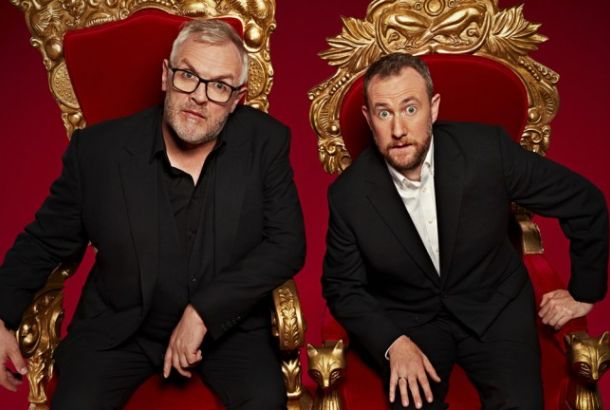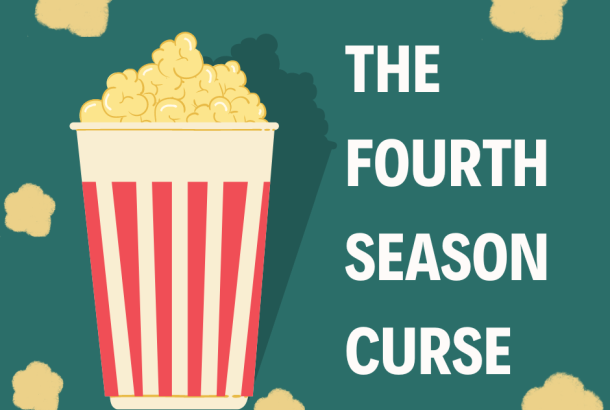Watching One Day is especially hard-hitting as a final year student

Recently, One Day has taken the world by storm. Netflix’s new 14-episode limited series racked up over five million views in its first week and was praised by many viewers as markedly better than the 2011 film starring Anne Hathaway and Jim Sturgess. Adapted from the 2009 novel by David Nicholls, the series stars actors Ambika Mod and Leo Woodall as Emma and Dexter, who forge a lifelong connection after meeting at their graduation ball in 1988.
This article contains spoilers.
Each episode, as the title suggests, depicts one day from the lives of Emma and Dexter. Every July 15, we see the characters as they navigate work, life, and their complicated relationship, watching as their bond develops through each snapshot. Meeting as graduates from the University of Edinburgh, Em and Dex’s chemistry will keep you hooked; Mod and Woodall depict the subtle changes brought by the passing of each year so convincingly. Soundtracked by artists such as Nick Drake, The Velvet Underground, and Suede, the show is beautifully shot across locations including London, Paris, and Rome.
As well as beautiful imagery and music, One Day also has a good deal of emotional impact – good luck to anyone who hasn’t yet watched the series for getting through the final episode without sobbing. Through its intense focus on two protagonists, One Day invests viewers in the story of Emma and Dexter as they struggle to find their feet in adult life. However, as a final-year university student approaching my own graduation, watching One Day was emotional long before its tragic ending.
From the first episode, the million-dollar question of ‘what comes next?’ is central to the show’s plot. Viewers watch as Emma and Dexter meet at their grad ball, winding up going home to Emma’s flat but never quite sleeping together. The small details of the interaction place the characters firmly in a university lifestyle that they don’t yet seem willing to leave: Emma offhandedly waters a plant from a random glass on her desk, and the pair sit down to breakfast in a cramped kitchen between her flatmate Tilly and a drying rack covered in underwear.
Rather than going through with the one-night stand that viewers may have expected, Emma repeatedly interrupts their intimacy with conversations about the future. As a final-year student, such sudden deviations to question what will follow graduation are just as pressing as they appear here. The relatability of the two characters continues into their visions for the future, where, for Emma, it is important to “change things, [and] do something that actually makes a difference.” Emma’s plans are a general, hopeful goal skirting around doing “something” rather than a concrete next step. Dexter is similarly illusive, responding that he hopes to be “rich” and “famous” after taking time out to travel, a response representative of the gap year plans for many more privileged and confused post-grads.
Through this interaction, One Day sets up the dynamic between Emma, focused on improving her “small corner of the world,” and Dexter, the privileged playboy who will have to deal with far more than money or fame. The first episode also begins the plot’s central theme of growing up, a journey that is particularly relevant and bittersweet. It only takes nine minutes for the series to pose the question “What’s the plan for your life?” along with the “morbid” dread, in the words of Dexter, that I feel myself every time I’m forced to reckon with my own “plan” for the years unwinding post-university.
When Dexter proposes going to sleep, Emma’s response “Why? Nothing tomorrow, just the whole of our lives stretching out,” is particularly pertinent. There is a sense of wanting to hold on desperately to the present in the first episode of One Day. Even as the pair repeatedly put off parting ways throughout the following morning, there are undertones of retaining the now in rejection of an illusive “tomorrow” beneath their romantic connection. Despite university life only being depicted in Episode One of the series, the emotions raised in Emma and Dexter’s first night together underpin both the rest of their lives and the existential feelings all too familiar to a student approaching the end of their degree.
As we move through the following episodes, One Day takes viewers through the various jobs, homes, and relationships in Emma and Dexter’s lives. Personally, the emotional impact of the series came from seeing how the lives of its protagonists progress over two decades, rather than just within the first few years of young adulthood. The series suggests that growing into adulthood is a long and muddled process, and as graduation approaches as an end-stop for the university period of my own life, the passing of time depicted in One Day helps to make the coming changes seem less daunting.
Emma and Dexter tackle all of the mundane milestones of life to come – buying houses, getting married, having children, changing careers – yet One Day doesn’t present these changes as lacking in comparison to the youth of uni life. There is a quiet comfort in watching two people grow up together, and in the fact that, although so much changes around them, it is the relationship that they formed on their last day in Edinburgh that remains a constant throughout all of the challenges of adulthood.
Rather than culminating in the ceremonial ending of youth through graduation, as many coming-of-age series do, One Day sees this moment as the start of a new story. There is something both tragic in watching Emma and Dexter grow up so quickly, and reassuring in the fact that their graduation creates the most important bond for their future, rather than being an event that signifies an ending.
At the end of the series, when Dexter returns to Edinburgh University twenty years after his graduation, the show flashes back to what is a now two-decade-lost memory of the night when he and Emma met. Through a circular structure, One Day reminds viewers of Dexter’s claim at 22 that he could only see himself at 40 as “not 40.” After discussing the future with Emma time and time again, there is more than a small amount of pain in seeing Dexter, now actually 40, returning without her to the setting where the rest of their lives, in a sense, began. So much has changed, yet as he sets off to climb Arthur’s Seat with his daughter, it is the memories of the first July 15 spent with Emma that keep him rooted to his youth spent in the city.
As I approach my own graduation with the same questions as Emma and Dexter, One Day was both reassuring and heartbreaking. Life will happen and time will pass, yet it is the enduring relationship formed between Emma and Dexter in a student flat that becomes the central thread of their lives. Whilst breaking our hearts, Netflix’s new series also shows that growing up, although painful and confusing, is made bearable thanks to the people we love.







